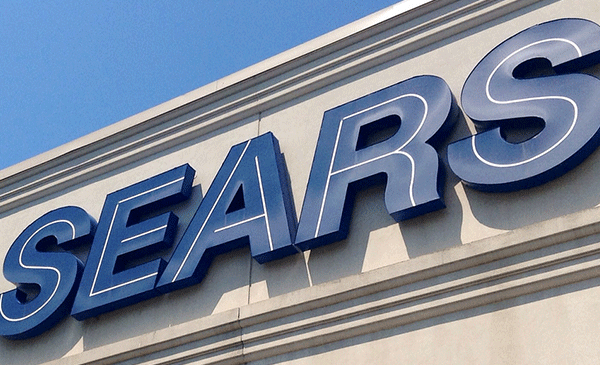Wouldn’t you know it, the week after we post an article applauding Sears for being good stewards of the Kenmore brand, it’s revealed that they’re trying to sell it off.
Oops.
Things move fast these days. Sometimes even too fast for an emailed article to keep up.
In our defense, it appears that Sears CEO Eddie Lampert is attempting to direct the sale to his own hedge fund, and we’re calling shenanigans. Lampert claims he’s insisted that the retailer is on the path back to solvency and even profitability, but between Craftsman and now Kenmore, they’re selling all the best parts.
Aside from the part about Sears keeping and supporting the Kenmore brand, we stand behind our article. The Kenmore brand stands as a pillar of sensible innovation and good design, perfect for the mid-range consumer who wants good, smart products, but doesn’t want to go overboard.
We doubt that Lampert believes his own words when he says Sears is on the path back to profitability. From a retailing standpoint, the company is so far behind the likes of Amazon, Walmart and even Target, the situation is hopeless. Even if they were to somehow stabilize their finances, it would take a monumental injection of cash and talent to match the infrastructure Amazon has.
 But Lampert’s no dummy. He knows that the Kenmore brand is strong, and as long as they’re jettisoning their best assets, he may as well keep one of them for himself and reap the rewards.
But Lampert’s no dummy. He knows that the Kenmore brand is strong, and as long as they’re jettisoning their best assets, he may as well keep one of them for himself and reap the rewards.
And there’s another reason the Kenmore brand will continue to have value. Technology fatigue.
Are Consumers Adopting Technology?
In the last few years, appliance manufacturers like Samsung, LG, JennAir and more have gone all-in on smart appliances. Perhaps seeing the success of products like Nest, Kwikset’s Kevo, and Ring, they’re convinced that the future of appliances lies in the Internet of Things (IoT).
So they’ve unveiled appliances that are super smart. They keep track of your food, your grocery lists, and your family members. They tell you how to cook, they know how much laundry detergent you need, and they perform all kinds of functions automatically.
These smart appliances are removing all of the mundane, repetitive tasks from household living. But are consumers adopting them?
New research says no, not really.
According to the research, smart appliances make up a tiny seven percent of the overall appliance market. Given the ubiquity of technology these days, with IoT everything, that’s a surprising figure.
Perhaps not. Smart technology takes the basic function of certain products to the next level of convenience. Locks and thermostats come to mind as natural fits for “smartness.”
But with appliances, the technology feels bolted on, at best indirectly related to the core functions. Smart refrigerators and ovens are nice, but in the end do they cool and cook food any better?
In some cases, consumers might be getting a little tired of technology. Brands are continually trying to one-up each other in search of the next must-have gizmo. As all of the good uses of technology are identified, it becomes increasingly likely that new ideas are met with eye rolls instead of excitement.
That seems to be the case in appliances, and consumers aren’t yet convinced enough to look past the higher price tags for whiz-bang features. That’s what makes Kenmore so intriguing. They don’t seem to be overdoing the technology.
It’s not that Kenmore is completely devoid of technology. They’re just being sensible about it. That may be by design, or more likely due to diminishing resources for their R&D department. Whatever it is, it’s positioning the brand as an alternative to over-the-top gadgets.
Now just watch. With our recent track record of proclamations, Kenmore will next week announce an amazing new feature that senses how hungry you are or pre-chews your food.




